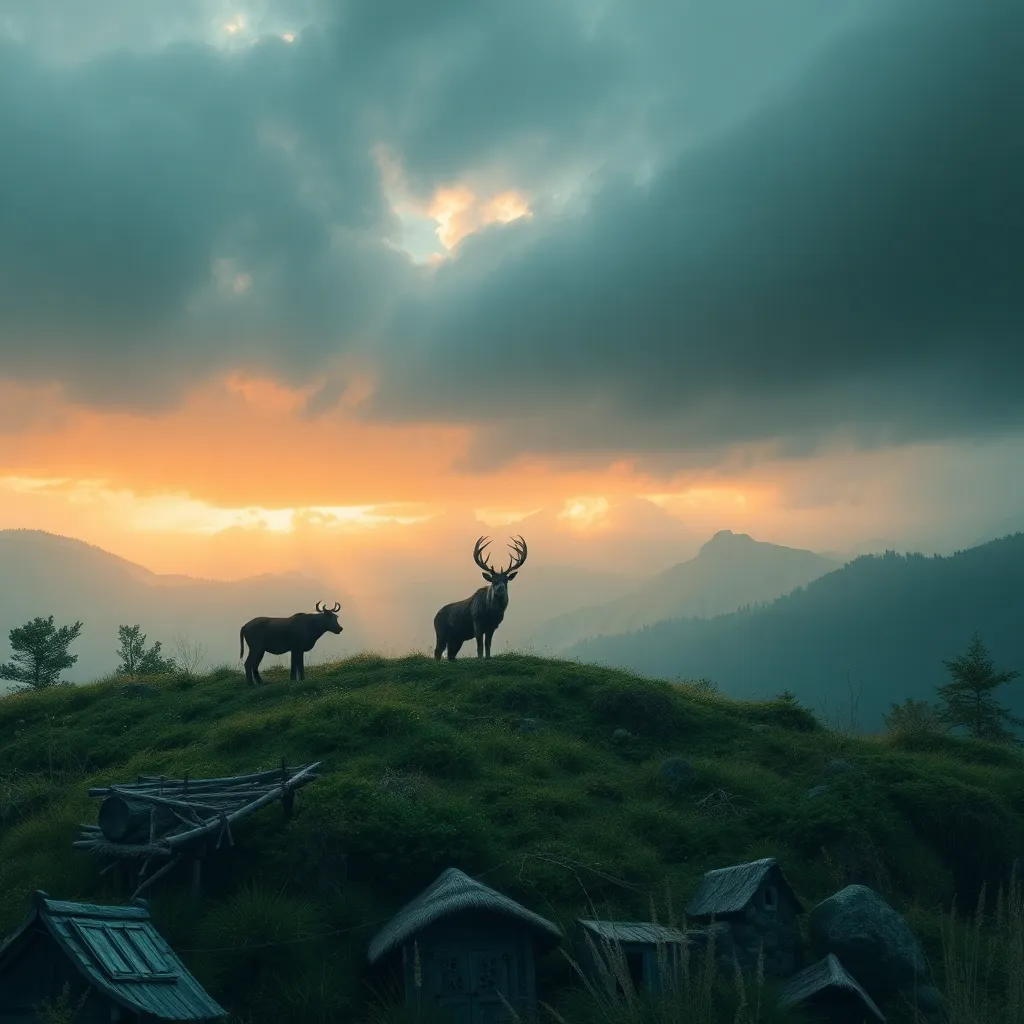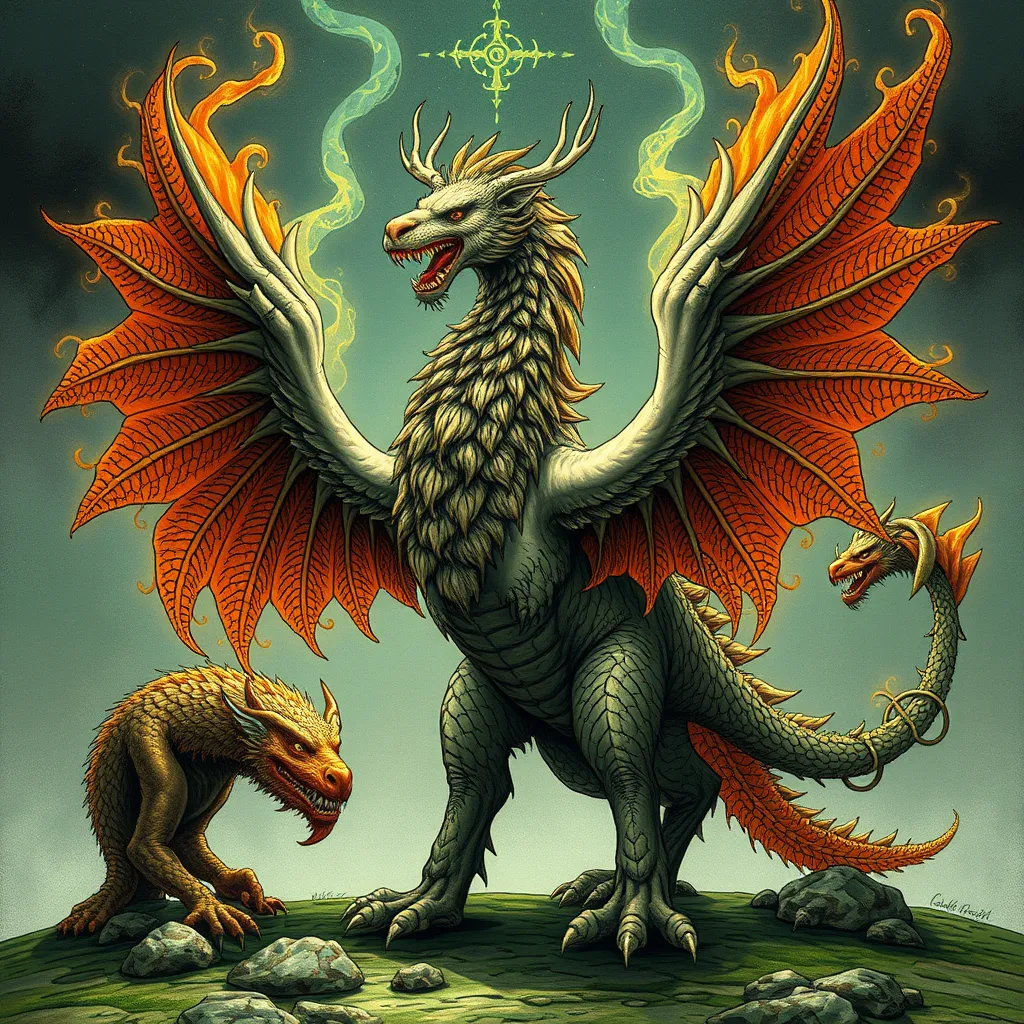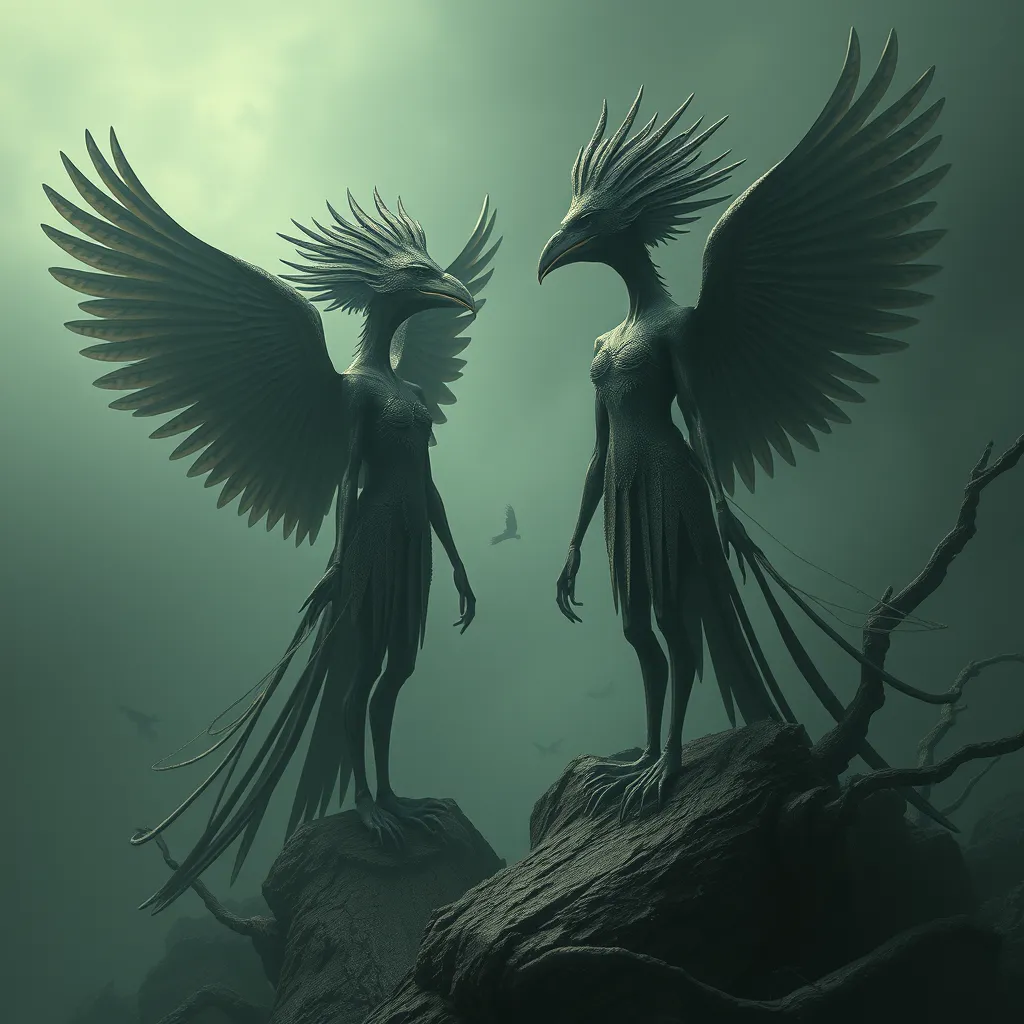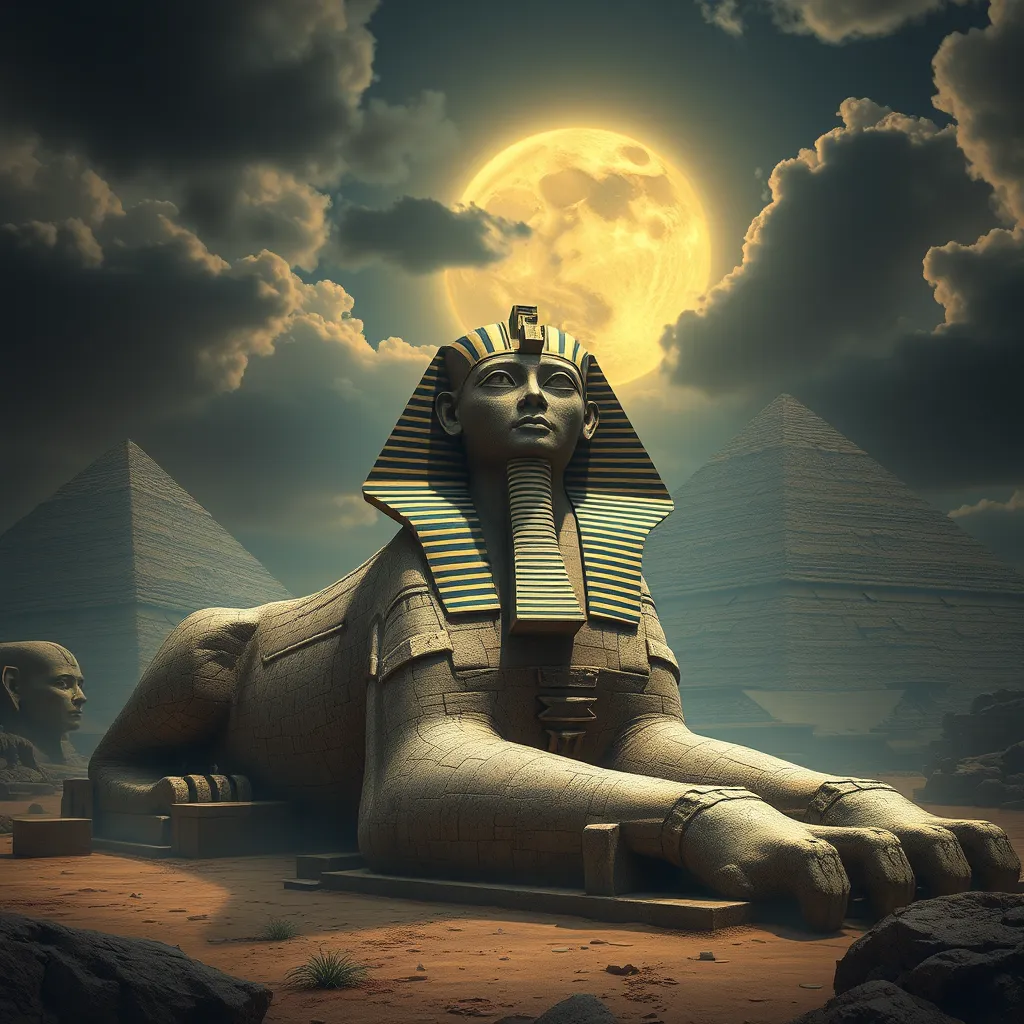The Orcish Perspective on the Natural World: Examining the Orcish Relationship with Nature & Animals
I. Introduction
Orcish culture is often depicted in fantasy settings as brutish, warlike, and savage. However, a deeper understanding of orcish traditions reveals a complex relationship with the natural world. Orcs, like many other races, have a profound connection to their environments and the animals that inhabit them. Understanding this relationship is crucial, as it sheds light on their cultural identity and ecological practices. This article aims to explore the orcish perspective on nature and animals, examining historical contexts, spiritual beliefs, and contemporary views on conservation.
II. Historical Context of Orcs and Nature
To comprehend the orcish relationship with nature, one must first consider their historical context. Orcs are often depicted as originating from rugged terrains, such as mountains and forests, which have shaped their cultural and spiritual beliefs.
A. Origins of orcish tribes and their environments
Orcish tribes traditionally emerged in harsh landscapes where survival depended on a keen understanding of the natural world. These environments fostered resilience and adaptability, essential traits for their survival.
B. Traditional beliefs and practices surrounding nature
Orcs have long held a reverence for nature, viewing it as a living entity that deserves respect. Their traditional practices often included:
- Seasonal rituals to honor the changing of the seasons
- Offerings to spirits believed to inhabit natural elements
- Mythologies that describe the creation of their lands and the animals within them
C. Evolution of orcish attitudes toward the natural world over time
Over centuries, orcish attitudes have evolved. Initially, they lived in harmony with their surroundings, but external pressures from other races and conflicts led to a more aggressive approach to resource acquisition.
III. Spiritual Beliefs and Nature
For orcs, spirituality is deeply intertwined with nature. Their beliefs reflect a worldview that recognizes the interconnectedness of all life.
A. The role of nature in orcish spirituality
Nature is often considered a sacred space in orcish spirituality. Mountains, rivers, and forests are not just physical entities but are imbued with spiritual significance.
B. Deities and spirits associated with nature
Orcish mythology features various deities and spirits, including:
- Gorath: The god of the hunt, revered for his guidance in tracking and survival.
- Lunara: The spirit of the moon, believed to influence the tides and fertility of the land.
- Tharok: The protector of forests, symbolizing strength and endurance.
C. Rituals and ceremonies honoring the natural world
Rituals often involve communal gatherings where orcs celebrate nature’s bounty. Ceremonies include:
- Harvest festivals to thank the earth for its gifts
- Rites of passage that incorporate animal symbolism and natural elements
- Seasonal dances that mimic the movements of wildlife
IV. Orcs as Stewards of the Land
Despite their often violent portrayal, orcs have long been stewards of their environments, practicing sustainable methods of land use.
A. Agricultural practices and land management
Orcish agriculture is characterized by:
- Crop rotation to maintain soil fertility
- Use of natural fertilizers derived from animal waste
- Selective harvesting to ensure long-term growth of plants
B. Hunting and foraging traditions
Hunting is viewed as a sacred duty rather than mere sport. Orcs practice:
- Respect for the animals they hunt, ensuring every part is utilized
- Seasonal hunting regulations to prevent overexploitation
C. Sustainable practices and respect for ecosystems
Orcs have a deep-rooted belief in the balance of ecosystems. They often engage in:
- Reforestation efforts following logging
- Water conservation practices to protect aquatic life
V. The Orcish Relationship with Animals
Animals hold a significant place in orcish culture, both as companions and symbols of strength.
A. Domestication and partnership with animals
Orcs have domesticated various animals, using them for:
- Transportation
- Hunting companions
- Guarding their settlements
B. Symbolic meanings of various animals in orcish culture
Different animals represent various traits in orcish culture:
- Wolves: Symbolize loyalty and teamwork.
- Bears: Represent strength and courage.
- Ravens: Associated with wisdom and foresight.
C. Role of animals in orcish warfare and daily life
Animals are integral to orcish warfare, often used for:
- Cavalry charges
- Scout missions
In daily life, animals provide companionship and assistance in tasks, reinforcing the bond between orcs and the wildlife around them.
VI. Conflicts with Other Races and Nature
Historically, orcs have faced numerous conflicts over land and resources, which have influenced their relationship with the natural world.
A. Historical conflicts over land and resources
Orcs have often been at odds with other races, leading to:
- Defensive strategies to protect their territories
- Encroachments on neighboring lands in search of resources
B. Interactions with other races and their impact on orcish views
Interactions with other races have led to:
- Adoption of new agricultural practices
- Increased tensions and misunderstandings regarding land use
C. Environmental consequences of warfare and expansion
The long history of conflict has resulted in:
- Deforestation due to the establishment of camps and settlements
- Disruption of local ecosystems from warfare activities
VII. Contemporary Orcish Views on Conservation
In recent times, many orcish tribes have begun to recognize the importance of conservation and sustainable practices.
A. Modern orcish tribes and their approach to conservation
Today’s orcs are increasingly engaged in:
- Restoration of damaged ecosystems
- Education about sustainable practices within their communities
B. Collaborations with other races for environmental preservation
Modern orcish tribes often collaborate with other races, leading to:
- Joint efforts in wildlife protection
- Shared knowledge about ecological practices
C. Future challenges and prospects for orcish stewardship
Despite positive strides, challenges remain, including:
- Climate change affecting traditional habitats
- Continued encroachment from expanding civilizations
However, orcish resilience and adaptability provide hope for their future stewardship of the land.
VIII. Conclusion
The orcish relationship with nature and animals is multifaceted, revealing a culture deeply intertwined with their environment. From their historical practices to contemporary views on conservation, orcs demonstrate a unique perspective that challenges common stereotypes. Acknowledging and respecting these diverse cultural views on the natural world is essential in broader discussions of ecology and environmental stewardship.




